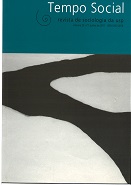Heidegger, Agamben and the animal
DOI:
https://doi.org/10.1590/S0103-20702011000100010Keywords:
Heidegger, Agamben, Animal, Humanism, NihilismAbstract
In this essay I analyse Heidegger's philosophical reflection on the relationship between human beings and animals, particularly as these ideas unfold in works like Letter on humanism, On the way to language and The fundamental concepts of metaphysics. My aim is to show the importance of this contribution to understanding the way in which Agamben reinterprets the Foucauldian concept of biopower. For Agamben, the animalization of politics is not a modern phenomenon, but concerns what remains unthought in metaphysics as a whole. Indeed his broader critique of Western political culture - which does not restrict itself merely to the analysis of modern forms of administrating life - draws heavily on Heidegger's reflection on nihilism, metaphysics and the troublesome figure of the animal. My final proposal in this text is to discuss, with Agamben, but also with Derrida, the extent to which Heidegger is successful in offering a theoretical framework capable of apprehending contemporary forms of biopower on grounds radically distinct from those inherited from metaphysics.Downloads
References
agamben, Giorgio. (1997), Homo sacer: le pouvoir soluverain et la vie nue. Paris, Seuil.
. (2004), The open: man and animal. California, Stanford University Press.
derrida, Jacques. (2002), O animal que logo sou. São Paulo, Editora da Unesp.
. (s/d), “Os fins do homem”. In: . Margens da filosofia. Porto, Rés.
dreyfus, H. (1993), “Heidegger on the connection between nihilism, art, technology, and politics”. In: guignon, C. B. (ed.). The Cambridge Companion to Heidegger. New York, Cambridge University Press.
ferreira, Jonatas (2009), “A digitalização da vida: uma apreciação de seus aspectos ontológicos e culturais”. In: szapiro, Ana (org.). Clínica da pós-modernidade: formas de subjetivação, de violência e de dessimbolização. Rio de Janeiro, Bapera.
& hamlin, Cynthia. (2010), “Mulheres, negros e outros monstros: um ensaio sobre corpos não civilizados”. Revista de Estudos Feministas, 18 (3).
foucault, Michel. (1998), O nascimento da clínica. Rio de Janeiro, Forense Universitária.
haar, Michel. (1990), Heidegger e a essência do homem. Lisboa, Instituto Piaget.
heidegger, Martin. (1987), Carta sobre o humanismo. Lisboa, Guimarães.
. (1999), Língua de tradição e língua técnica. Lisboa, Passagens.
. (2006), Os conceitos fundamentais da metafísica: mundo, finitude, solidão. Rio de Janeiro, Forense Universitária.
jonas, Hans. (2004), O princípio da vida: fundamentos para uma biologia filosófica. Petrópolis, Vozes.
kojeve, A. (2002), Introdução à leitura de Hegel. Rio de Janeiro, Contraponto.
stiegler, Bernard. (2001), Le temps et la technique. Vol. 1: La faute d’Épiméthée. Paris, Galilée.
Downloads
Published
Issue
Section
License
Copyright (c) 2015 Tempo Social

This work is licensed under a Creative Commons Attribution-NonCommercial 4.0 International License.


